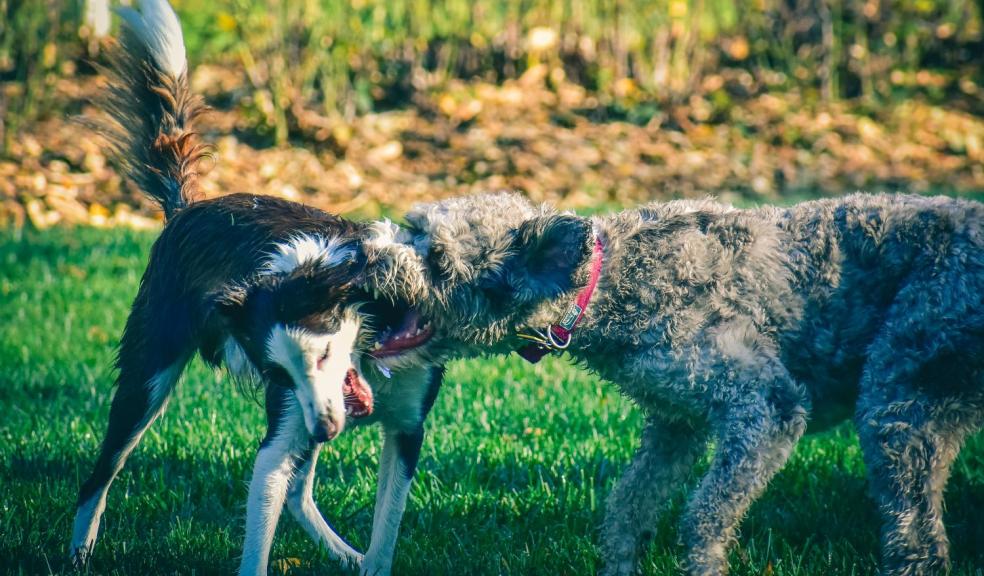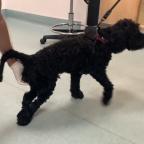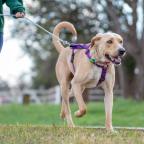
Pandemic Pups Need More Socialisation, Study Finds - Dog Expert Shares Tips To Help
A new survey has found that half of UK vets have reported an increasing number of dogs displaying aggressive behaviour following the pandemic puppy boom, with 87% of the dogs examined having been born and raised during the lockdown.
The data raises concerns for vets about the negative impact Covid-19 had on breeding, raising and medically treating pups during restrictions. To improve dogs’ well-being - especially those born during the pandemic - dog experts at Kennel Store have provided several common signs that your pet is becoming increasingly agitated and how to diffuse this behaviour through socialisation tips.
7 Common Signs Your Dog is Displaying Fearful, Territorial or Regular Aggression
- Growling or snarling
- Biting or snapping
- Raised fur and stiff body language
- Pinned back ears
- Staring or staring down other pets
- Excessive barking
- Uncontrollable urination or defecation
Tips For Socialising Your Pandemic Pup & Other Dogs
While there is no doubt that the current puppy boom following the pandemic has increased the number of dogs being taken in, it is essential that owners remember that it requires quality training, socialisation, and care.
Dogs are social pets, and their behaviour is heavily influenced by their upbringing. If you adopted a dog while they were a pup during lockdown then it is likely they lacked socialisation to the outside world and appropriate training to deal with overwhelming situations.
However, if you are concerned about their socialisation and how they can interact with new surroundings in the future, there are several ways to assist your dog in acclimating to other animals and people.
1 - Slowly Introduce Them To New Surroundings
When it comes to socialising dogs adopted during the COVID-19 lockdown, starting slowly is critical so you don’t overwhelm them. Introduce them to new people and other dogs one at a time and keep encounters brief and regulated. As the dog feels more at ease, gradually increase the time and frequency of socialisation sessions. Remember to be patient, and consistent, and to prioritise the dog's well-being. If you feel it is necessary, seek a professional dog trainer.
2 - Use Positive Reinforcement
Pups raised during Covid-19 were unable to socialise and new surroundings are likely to have a larger impact on their wellbeing. This includes demonstrating aggressive or fearful behaviour. When socialising dogs adopted during the pandemic, it is important to apply positive reinforcement tactics. This includes rewarding good behaviour with treats that will aid in the development of positive socialisation and encourages similar reactions. This reduces the likelihood of aggressiveness and makes your dog a more delightful companion.
3 - Train Your Dog With Simple Obedience Commands
During lockdown, many dogs missed out on critical socialisation experiences that likely led to aggressive tendencies. The lack of opportunities to interact with other animals may mean they are overstimulated when meeting new people and pets. Basic obedience training to teach your dog to follow simple commands like stay, sit and come lays the groundwork for improved socialisation and reduced aggression. These instructions will help to regulate their behaviour and interactions with others and become better adjusted when facing new environments.
4 - Use Toys To Facilitate Safe Play
Toys can be an effective aid in socialising dogs and making them feel more at ease around other humans and pets. Playing fetch or tug-of-war can take your dog’s attention away from potentially anxiety-inducing situations by having them focus on a single objective. These toys can also help dogs learn how to play well with others and create close bonds. To further reduce the likelihood of aggressive behaviour, select toys that are appropriate for the size and breed of your dog like soft toys for small dogs and robust toys for larger breeds.
5 - Organise a Playdate in a Controlled Environment
Covid-19 meant there were very limited to no opportunities to organise a dog play date which significantly contributes to a pup's socialisation. Regular playdates within a controlled environment like a park or garden can help your dog gain confidence and learn how to appropriately interact with other pets. To ensure a great experience for your dog, consider playmates of a similar size that have a calm demeanour that won’t overstimulate your pet. Remember to supervise your dog's interactions to ensure that they are playing appropriately.
In general, it is vital for owners to prioritise socialising their dogs from a young age, but pups who were raised during lockdown with limited external interaction from the home require additional mental stimulation. Socialisation is a continuous process of exposing your dog to new people, animals, and environments throughout their life, so remember to be patient and considerate of how your pet may display fearful, territorial or frustrated aggression.







